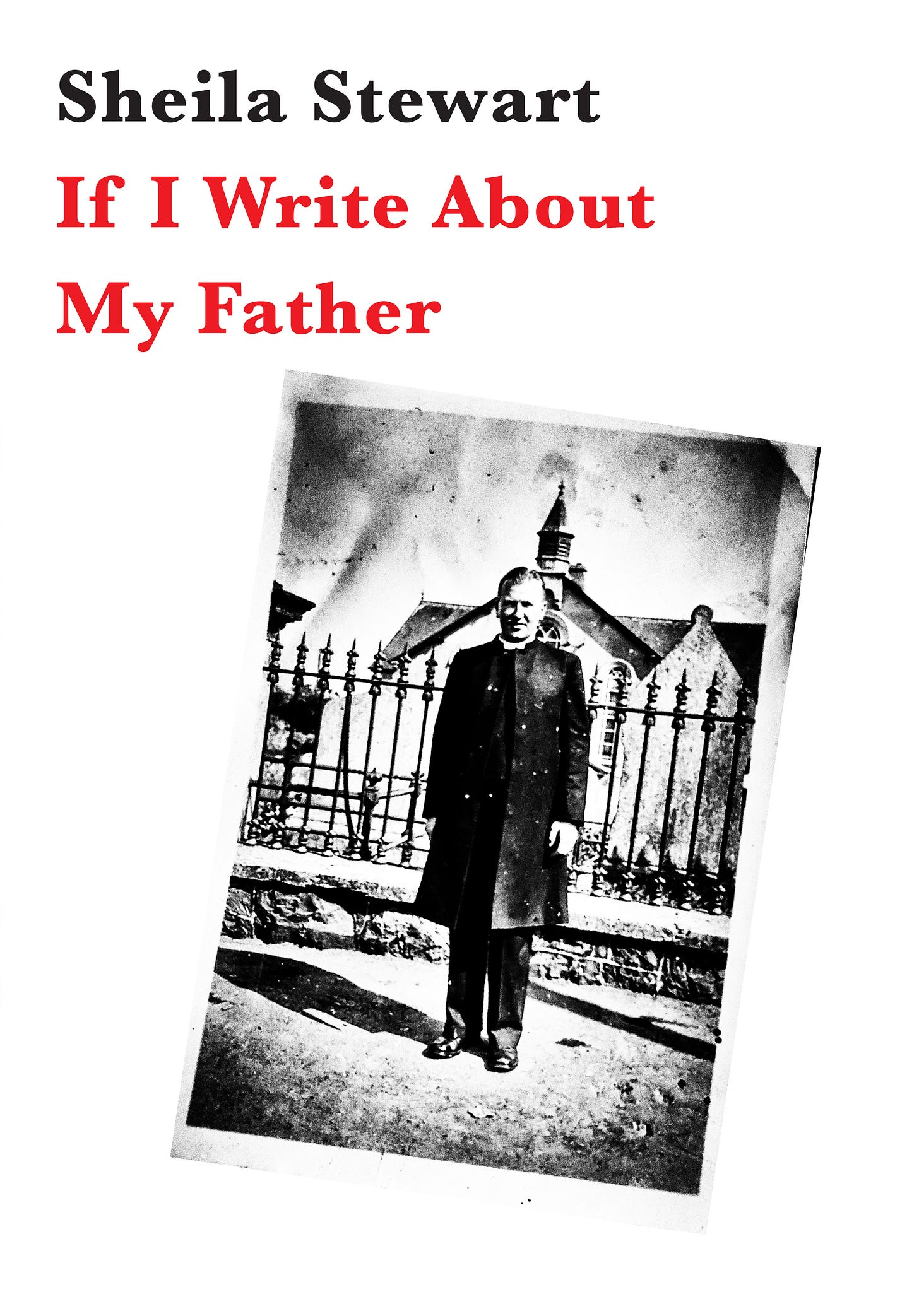If I Write About My Father by Sheila Stewart
Reviewed by John Oughton
Fathers are often powerful influences on their offsprings’ psyches and self-mage. For better or worse, Dad often provides the first image of a man, and how he behaves, that children encounter. And, like humans in general, fathers run the gamut from nurturing to tyranny, from caring to abuse. Thus, it’s not surprising that there are many fathers in literature.
On the darker side, there’s Sylvia Plath’s classic rant, “Daddy.”
“Daddy, I have had to kill you.
You died before I had time——
Marble-heavy, a bag full of God…”
In Kafka’s “Metamorphosis,” the father is distant, unloving, and wounds his son-turned-insect. A more equivocal dad appears in Roethke’s “My Papa’s Waltz”; a child is snatched up by his boozy dad and forced into an awkward dance that is both loving and scary.
In her new poetry collection, If I Write About My Father, Sheila Stewart explores the difficult relationship she had with her father, a Northern Irish Presbyterian minister who moved to Canada, changing allegiance to the United Church. Stewart relates how, as a child, she was both fascinated and bored by her father’s role in the community, and the requirements on his family to dress well and attend every service. There is a nice ambivalence in her title, given the initial “If.” Should she write about her Dad? In fact, not all the poems here are about her father. Some touch on other subjects (her mother, nature, Stewart’s teaching job, for example) as a kind of pause or marker between the more loaded explorations of Rev. Stewart as a parent, public figure, and sometimes enigma. She is troubled by the double nature of Christian churches in general, recalling the tales of abuse, especially the residential school system for Indigenous children. Musing on the fabrics of liturgical robes, she mentions “the Church’s abysmal past.”
References to clothes and sewing are running threads (pun intended) throughout this collection. The lines “itch of the stitch / of the world” comment on this connection in “Dispatches from an unfinished world.” One short poem, “Stitch: Unabridged” appears to be a dictionary entry, noting the noun’s use in clothing and surgery. Related poems throughout the collection include “Threads”, “Robes,” “Gowns,” “Dad’s Bowtie,” and “Seams Up the Back.” Sewing joins fabrics together to make clothes, some of which become uniforms or vestments which set us off from others: her father, robed, is no longer just her parent but a symbol of his church.
Technically, Stewart shows her mastery of different forms. There are free-verse pieces that play with spacing and indentations; quatrains; occasional use of rhyme; and even a pair of effective prose poems, “Beneath Your Mothertongue” and “Billy Stewart’s Geography.” Some of the poems suddenly leap between different subjects, as if the author is recording two different streams running through her consciousness.
And what about her father? Did her choice to make the leap and write about him resolve the tensions and differences she refers to? One of the strongest poems in this collection, “Over the Bridge,” offers a series of paradoxes that suggest Stewart has recognized that part of her father’s nature is a puzzle that will never be completely solved.
“To teach me about silence, my father preached a thousand sermons.
To teach me about money, my father picked my pocket.”
I recommend this collection for its honesty, and the author’s ability to explore difficult emotions and memories without flinching or complaining. Anyone who has had a strained relationship with a parent will find echoes in here—and some may be inspired to ask themselves: “What if I write about…?”
About the Author
Sheila Stewart’s publications include two poetry collections, A Hat to Stop a Train and The Shape of a Throat, and a co-edited anthology of poetry and essays entitled The Art of Poetic Inquiry. Awards include the gritLIT Contest, the Scarborough Arts Council Windows on Words, and the Pottersfield Portfolio Short Poem Contest. Her poetry has been widely published in Canadian and international journals. She recently left teaching at the University of Toronto to devote herself to writing.
Book Details
ISBN 978-1-77171-554-6
Ekstasis Editions, 2024
112 Pages




I appreciate John's thoughtful review! And thank you to The Seaboard Review for all you do!